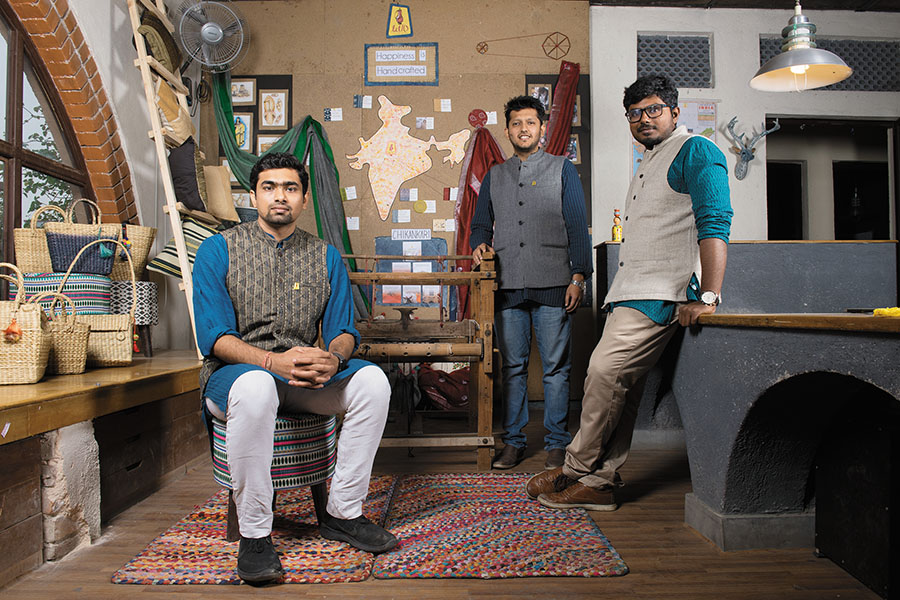
Maneet Gohil, Sanchit Govil, Albin Jose: Army for artisans
 (From left) Lal10 co-founders Maneet Gohil, Sanchit Govil and Albin Jose pass on 65 percent of the margin they earn to the artisans who manufacture the products
(From left) Lal10 co-founders Maneet Gohil, Sanchit Govil and Albin Jose pass on 65 percent of the margin they earn to the artisans who manufacture the productsImage: Amit Verma
Sanchit Govil | 29
Albin Jose | 27
Co-founders, Lal10
Category: NGOs & Social entrepreneurship
Shopping for exorbitant handicraft products in metros makes one wonder if rural artisans who manufacture them earn enough from the high margins that branded labels make from them. Engineering student Maneet Gohil was consumed with the same question in 2014 when he visited the Kala Ghoda Festival in Mumbai where similar products were being sold. Only a few months ago, he had seen the plight of rural artisans when he visited his family in the remote Pata village of Uttar Pradesh.
This thought was the genesis of Lal10, which aims to connect rural artisans to global retailers. Gohil’s friend and colleague from the National Institute of Industrial Engineering Sanchit Govil joined in 2015 while acquaintance Albin Jose came on board in 2016. Click here for 30 Under 30 2019 list
Lal10’s early business model of selling artisan products online to consumers directly failed to take off. Demand was weak and artisans could not hold on to inventories for long. It has since adopted the approach of providing bulk sales to large retailers and identifying micro-entrepreneurs who are trained for packaging, quality checking processes and working with the artisans.
Lal10 provides training to 1,200 artisans across eight Indian states, who make wooden, apparel and handloom, lighting and home furnishing and natural fibre products. It has a gross margin of 35 percent (artisans earn the majority 65 percent) and total sales per month are about `40 lakh, up seven-fold from 18 months ago. Lal10 has over 300 clients, including Fabindia, Pepperfry, Reliance, Ajio, Myntra, Zara, House of Anita Dongre and ITC Fortune Hotels.
Its mentor and investor Chand Das says, “Lal10 should focus on growing with 15 of its key accounts. Working capital management will become critical for them going ahead.”

(This story appears in the 15 February, 2019 issue of Forbes India. To visit our Archives, click here.)
Post Your Comment
Sotheby's goes under the hammer for $3.7 billion
Mission impossible? Maker of plant-based burger struggles to meet demand















